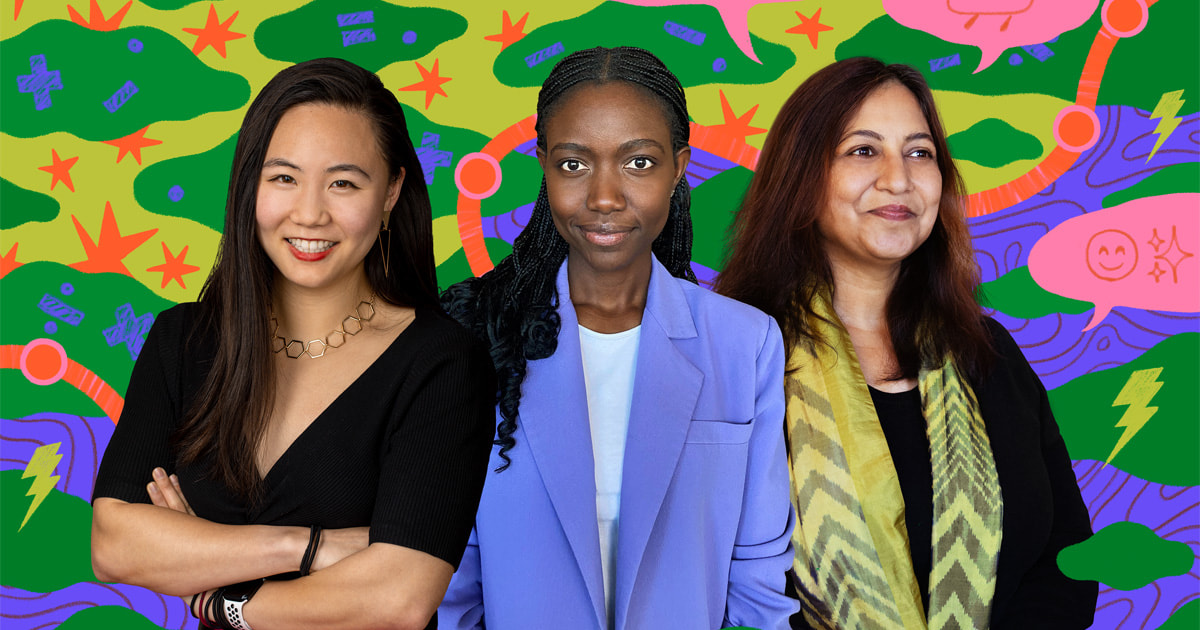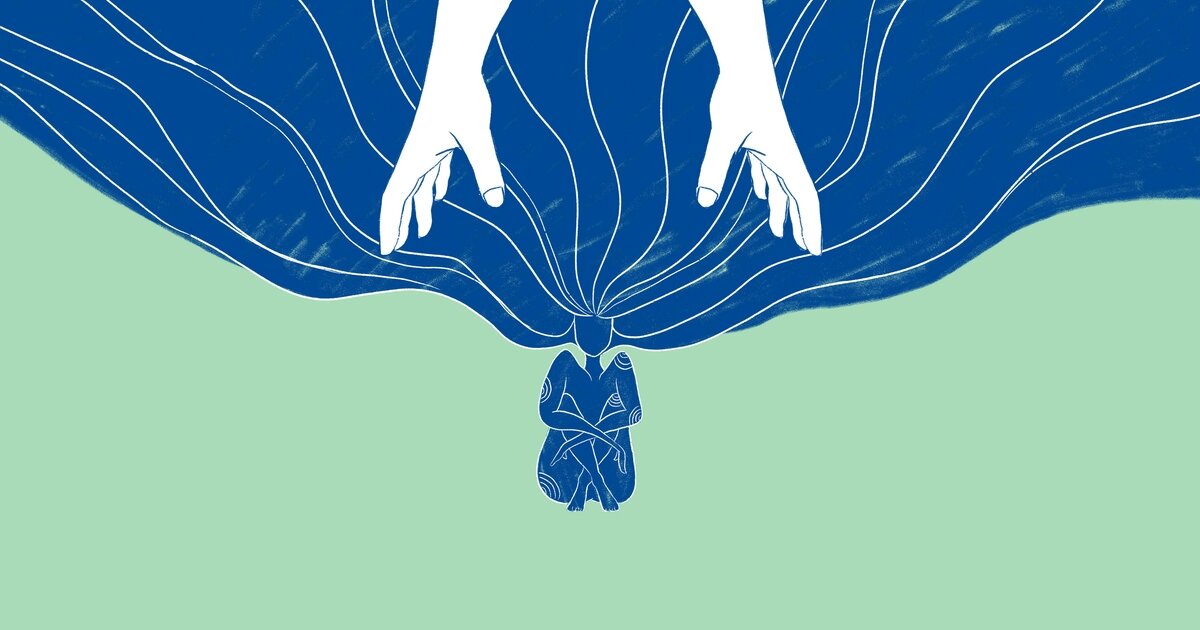- March 2024
UPDATE
Three app developers are shaping the future of education, fitness and health
The creators of Boddle, Run Legends and Wysa — all graduates of the Apple Entrepreneur Camp — talk about how they help people with their innovative apps
All over the world, developers are creating apps that break down barriers between genders, race, socioeconomic status, language and physical abilities.
To mark the fifth anniversary of Entrepreneur Camp, Apple spoke to app developers whose apps are setting new standards in education, fitness, and mental health. All three women participated in the immersive tech lab, which invites developers from underrepresented groups to take their apps to the next level with individual guidance from Apple experts, engineers, and executives. Entrepreneur Camp underscores Apple’s ethos that apps should be made for everyone, by everyone.
Edna Martinson, a 2023 Entrepreneur Camp graduate from Tulsa, Oklahoma, launched Boddle Learning during the COVID-19 pandemic as students and teachers were adjusting to the sudden shift to remote learning. The educational app for kids uses gamification and machine learning to tailor content to children’s knowledge levels, helping them close learning gaps and build confidence in the classroom.
After graduating from MIT, 2022 Entrepreneur Camp graduate Jenny Xu founded her own studio and combined two of her lifelong passions – running and gaming – with Run Legends. The immersive multiplayer game is designed to make walking and running more fun and encourage players of all fitness levels to team up with friends to fight and overcome real-life fears.
Jo Aggarwal, a 2019 Entrepreneur Camp graduate, is the founder and CEO of Wysa, an emotionally intelligent chatbot developed by therapists in collaboration with AI designers. It helps users talk about difficult feelings and thoughts anonymously at any time. The app from Boston and Bengaluru has already helped millions of people in 95 countries become happier.
Below, Martinson, Xu, and Aggarwal share how they got into app development, how they personalized their apps to make them more accessible to everyone, the key lessons they learned along the way and at Entrepreneur Camp, and how they leveraged technology to develop innovative solutions to real-world problems.
Giving women space in app development
Jenny Xu (JX): When I started in the gaming industry, I felt like I was the only one doing what I was doing. I grew up playing a lot of interactive games with narrative structure — artistic games where you learn about life, and I think that’s a genre that’s popular especially among women. Even though Run Legends is a fighting game, it’s not a game that makes you feel really aggressive while playing it — you can draw strength from it. Now that I’ve raised some money and sold some games, I’m trying to give back and show that it’s possible to make games that aren’t just shooters, but actually make the world a better place.
Edna Martinson (EM): My perspective as a woman in this space has really shaped our team and the way we connect with our community, especially since most of the elementary school teachers who use our app are women. We’ve had a lot of fun hosting virtual career days on Zoom, showing the kids how we developed Boddle and introducing them to game design. It’s just great to see the excitement on the little girls’ faces when they learn that a woman co-founded Boddle. It shows them that they too can reach leadership positions in the technology field.
Breaking down barriers through personalization
Jo Aggarwal (JA): We are on a mission to find a solution to global mental health and provide a safe space for people to process their thoughts and emotions to build resilience regardless of stigma, race, gender, access to a therapist or diagnosis… Language can also be a barrier and in an effort to make Wysa support more inclusive, we are launching Wysa in Spanish to provide more equitable access for marginalized communities.
EM: At Boddle, we understand that every child learns differently and at their own pace, so we use machine learning to tailor content to children’s level and identify learning gaps through fun and interactive gameplay. We also give teachers the tools to support their students by giving them access to assessments and videos in maths and English for children from kindergarten to sixth grade, as well as a range of assessment and reporting tools.
JX: We noticed that other fitness experiences often rewarded the faster or fitter participants for how fit they were, leaving others intimidated. Run Legends uses data from Core Location, Core Motion, and the Apple platform’s accelerometer to detect how fast someone is running and adapt gameplay accordingly. So whether you want to play at a 20-minute walk pace or an eight-minute run pace, it doesn’t matter; there’s really no benefit to going faster or slower through our game. There are quite a few “walkers” who play Run Legends who say the game has made them move from walking to a faster pace, more like jogging.
Support and mentoring
YES: The Entrepreneur Camp has been amazing. I have met and made friends with so many like-minded entrepreneurs. I stay in touch with some of the group who are in similar fields. The campus is so beautifully designed and learning Apple’s design principles in this environment was like a dream come true. We had design sessions with members of the Apple team who helped us understand how to position Wysa and today we are one of the most popular apps in our space.
JX: When we participated in Entrepreneur Camp, Run Legends was still in a very early stage. We didn’t even know exactly what the game would look like. We had the opportunity to talk to the design team, who knew what worked in the App Store and took a close look at our app. One example was our onboarding experience — our contact said to us: “What happens if a player isn’t ready to run or go outside? You would lose so many people if you didn’t offer an alternative experience that can be played indoors.” Based on this feedback, we changed our entire onboarding process and after launch, we found that almost half of all players used the alternative experience.
Creating more immersive experiences
EM: Boddle is more than just a game for math or English. We are creating a learning metaverse with different gaming experiences. If kids love basketball, they can jump into a basketball game. If they are interested in pets, they can try our pet battle game. The great thing is that kids can choose what they want to play and take what they learn with them wherever they go in Boddle’s world. They are in charge of their own learning adventure, choosing what they want to do and learning along the way.
JX: In Run Legends, we use 3D audio to make it sound like the battle is actually happening around you when you move your head. For example, if you turn left, you might hear the monster growling at you. But if you turn right, you hear your teammates cheering you on. You feel the haptics when you charge your attack and when you sprint, and you feel like the battle is happening right here. That feeling makes people train longer and harder. Players often tell us that the game has helped them do the fastest walks or runs of their lives. And that’s because of that interactive audio experience.
YES: What’s really unique about Wysa is the way we’ve evolved the product incrementally. We didn’t start with a clinical workbook and turn it into a chatbot. We used evidence-based techniques that worked and then listened to user feedback on what they needed and where some weren’t working for them. Then we worked with clinicians to develop models to support users in their self-help attempts. This created a balance of power between users and clinicians, supported by AI and analytics, that wasn’t possible before.
Innovative solutions for real problems
YES: We wanted to create a seamless mental health resource — a resource you can access on your phone at 3 a.m. and use as often as you need. Research shows that people are three times more likely to open up to an artificial intelligence than a human therapist. This offers the opportunity to create psychological safety, but it also needs to be accompanied by privacy-focused design and proven, measurable outcomes. We’ve seen the impact in both adolescents and older adults with chronic pain, and in workers and technicians alike.
JX: The narrative in Run Legends is that through your in-game struggles, you’re battling real-world fears. So you’re not battling a lackey or a generic enemy: you’re battling the critical grandma who tells you you’re not good enough, or the competitive Chad who’s always trying to beat you. We’ve heard from our players that it’s a cathartic experience. The struggles and the narrative of overcoming obstacles actually heal them.
Press contacts
Apple Press Office
+49 89 99640 300





